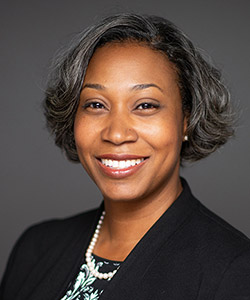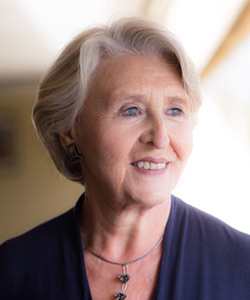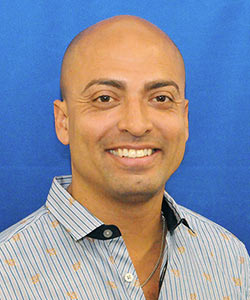Authored by: Natalie Levkovich, CEO, The Health Federation of Philadelphia; Jose Rodriguez, Senior Director of Diversity, Equity and Inclusion, The Health Federation of Philadelphia; Toya Lawson, Partner, Bridge Partners

The Chief Diversity Officer (CDO) role continues to gain prominence in both the nonprofit and for-profit industries. This is an encouraging sign, especially as societal change demands that commitment to Diversity Equity and Inclusion be front-and-center when critical business, cultural or organizational decisions are made. Job title and search research confirms this trend; LinkedIn found that individuals with the title “head of diversity” have more than doubled and those with the title “director of diversity” increased 75% and the “Chief Diversity Officer” position rose 68% in just the last year. However, the proliferation of diversity leaders does not always equate to tenure or success in the role; the average tenure of CDOs is less than two years.
If organizations cannot make a commitment to DEI work at the top it’s nearly impossible to make it work throughout the organization. DEI leaders must have access to the C-suite, decision-making influence, and the ability to build trust and engagement with employees. But the hard work, as The Health Federation of Philadelphia has found, starts before the CDO job-search begins or the placement happens.
An implicit and explicit commitment to equity
The tenets for success in the CDO role start long before the position is created or filled. Rather than looking at hiring a CDO as a box-ticking exercise to nominally address DEI, the organization – and specifically the CEO – should consider in advance how this new dynamic will affect operations and only hire a DEI professional if they are willing to make changes and allow that professional to express and exercise their independent judgement.
CEO’s must be honest with themselves before starting the journey and ask hard questions, like:
- What does success look like for this role?
- How safe do I feel entering into this turf?
- How well do I know myself and my organization?
- What are the underlying processes and principles at my organization?
- Will I be threatened by the addition of this role?
To truly set the stage for a successful partnership between the CEO and future CDO, it’s critical to reflect on these questions first and gather the necessary data before moving forward.
In the case of Health Federation, the hard work began with investing in a consultant to assess the organization’s commitment to diversity, equity and inclusion. Although equity and inclusion has been a focus for the organization since its founding, the assessment confirmed the belief that there were opportunities for operational improvements and important internal dialogues that could and should be led by a Chief Diversity Officer.
The position was also created with a mindset of continuous process improvement; not total transformation or redirection of the organization, but an understanding that no matter how good you are, you can always do better. That premise set the stage for a true partnership between the CDO and CEO that has carried through from the initial interview to the onboarding in September 2021, to the present. That foundational layer of implicit and explicit commitment to equity – along with transparent sharing of the assessment’s findings – led to a smooth transition when the CDO was hired.
Traits that should guide a CDO search
When it’s time to start the search for a CDO, there are three essential traits that Bridge Partners recommends looking for in candidates. First, identify someone with passion and commitment to the work of diversity, equity, and inclusion, coupled with previous successful experience of helping organizations to manage change. The work of DEI is all about change management and helping people to look at things differently within their organizations.
Second, a DEI leader must be a compassionate influencer who is approachable and easy to talk with and who possesses strong emotional intelligence. DEI leaders must be able to speak with employees at all levels within an organization, building relationships, confidence, respect, and trust.
Third, a DEI professional should have a strong business acumen and strategic thinking skills. Executive teams desire DEI leaders who can be strategic thought partners providing insight into how DEI can move the business forward.
Making the hard work, work
Once the role has been filled, the CEO must give the space for the CDO to maximize the potential of developing relationships throughout the entire organization, as well as set him/her/ them up for success. There is also incumbent responsibility on the CDO to develop a strong relationship with the CEO so they can understand at a deeper level the institutional knowledge and working dynamics with key stakeholders. The preparatory work that was done by the CEO must be reciprocated by the CDO.
Success in the relationship requires a mutual commitment to be curious and confident that there is always room for improvement when it comes to equity and inclusion. Finding those opportunities is not to find fault but rather to support the process of continuous organizational growth. Working together requires establishing trust and safety. The CEO has to be willing to be both candid and humble and the DEI professional has to be both supportive and honest about their observations. If those conversations can occur in a space of mutual respect, even if the subject is difficult, then presenting a unified and credible voice to the staff can be the outcome.
Unfiltered and unmanaged access to anyone on the staff is critical. The CEO must be intentional about providing space for employees to proactively come to the CDO. That space is necessary for the CDO to cultivate trust and credibility across the organization, which is paramount to the overall success of the role. A DEI professional may approach organizational processes, procedures and cultural issues from a unique lens, but they need first-hand input and data from employees to turn their expertise into tangible actions or subtle changes.
Charting a course for tenured success
In the case of Health Federation, as well as other organizations or corporations with a strong DEI foundation, the challenge for the CDO may be how to dig even deeper and find the small percentage that’s needed to move the needle from 90-94% commitment. That unique challenge can be met by spending time with peers and the leadership team to gather insights, perspectives and buy-in on the collective DEI vision and nuanced changes that need to be made to initiatives, messaging, and internal dialogues.
Commitment from the CEO to continuous improvement, through iterative changes and subtle achievements lead by the CDO, is necessary to ensure the tenure of the role. At Health Federation, early steps have included:
- A six-month program of baseline DEI training for the entire staff
- A bi-monthly DEI newsletter that covers a full spectrum of topics and categories.
- The formation of a DEI committee with members who are representative of the organization as a whole.
- An “open door” policy and level of trust that encourages employees to voice their concerns one-on-one to the CDO.
- Assisting Health Federation’s community health center members along their DEI journey
The CDO role is truly a large and influential one within an organization. If designed and structured properly, the role will interact with, have impact on, and influence over all employees throughout an organization. Important, too, is the understanding that the hard work is never done. Continuous internal improvement will eventually lead outward to review external communications and programmatic reach bringing even greater visibility to the CDO role and lead to tenured success within the organization.
About the authors:

Toya Lawson
Toya Lawson is a Partner with Bridge Partners, an executive search firm with a unique mission to diversify leadership teams. She has twenty years of experience working in retained and contingent search, corporate human resources and talent acquisition environments. Throughout her career, she has recruited candidates at all levels from administrative support professionals to CEOs and executive team members across a variety of industries. Her clients view her as a trusted advisor, her relationships with candidates are long-term, and she prides herself on always ensuring that her searches and shortlists are diverse and inclusive.

Natalie Levkovich
Natalie Levkovich has held the position of CEO of the Health Federation of Philadelphia since 1987, and served as director of program development for three years prior to that. During this tenure, she has led a number of notable, community-oriented, collaborative public health initiatives, and has overseen the organization’s growth from a budget of approximately $200,000 to more than $40 million. Natalie is assisted by a highly qualified senior management team.

José Rodriguez
José Rodriguez joined the Health Federation of Philadelphia in 2021 as Sr. Director for Diversity, Equity and Inclusion. Prior to this role he held several JDEI leadership roles at the Pennsylvania State University and Cabrini College. José brings a wealth of experience in advancing diversity, equity, and inclusion in multiple settings, and has more than 25 years of experience in the field as a JDEI professional trainer, facilitator and coach. He is a primary champion for creating and promoting opportunities for dialogue toward an understanding of diversity, equity and inclusion; and is building a comprehensive JDEI program both internally at the Health Federation and within its network of member health centers. José holds a Bachelor of Arts from Allegheny College and a MS in Higher Education from the University of Pennsylvania.






